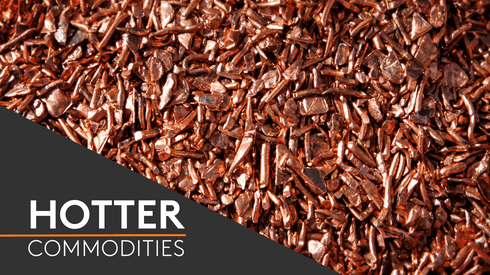Since February, when China’s Operation Green Fence was launched, the situation facing scrap merchants has gradually become a little clearer.
Earlier this year, word began to filter out to the world scrap trade that Chinese customs authorities were toughening their inspections of scrap and waste imports.
More material was being quarantined at ports, inspections of both cargoes and documentation were more rigorous, and there have been reports of criminal cases in China arising out of what the government itself labelled Operation Green Fence.
This ties in with a renewed political and media focus on environmental issues in China: in this case, Beijing’s desire to stop hazardous and poisonous materials being dumped in China from other parts of the world.
Sounds fair enough. But the effect on the world scrap trade is roughly what you would expect when a key source of demand suddenly turns unreliable: confusion and a bit of panic.
What exactly are the new rules? How to comply? What material is prohibited and what is not? How do we get clear information? Will material be rejected and sent back, or just subject to delays or fines? And is this a permanent regulatory shift or just a temporary crackdown?
The situation is getting clearer
Since February, when Green Fence was launched, the situation has gradually become a little clearer.
We know, for example, that this is a 10-month campaign that was always intended to have a serious psychological impact on the scrap trade. The aggressive and exhaustive nature of the operation confirms this, and the accompanying confusion – deliberately created or not – will only help to achieve Beijing’s goal.
Suppliers are gradually learning what can be sent to China and what can’t. For example, Sims Metal Management told its suppliers recently that it would be adopting a strict approach to any contaminated or “pluggy” cable it was thinking of sending to China.
At the same time, there is a growing acceptance that Operation Green Fence – while sudden and a bit shocking – is about implementing existing regulations that are really no different from standards elsewhere in the world.
China raises standards
In the scrap trade, suppliers have been lucky enough until now to enjoy the combination of growing demand and poor regulation. The fact that the Chinese government wants to raise standards by enforcing old regulations is a sign of China’s progress and should be welcomed.
But it’s not yet clear that’s what is going on here. It may be that certain government departments are throwing their weight around in an attempt to flaunt their environmental credentials. It’s possible that this could be the start of a permanently more rigorous regime, or it may all blow over and by 2014 it’ll be business as usual.
Pushing in that direction is the fact that China needs overseas scrap in the same way that it needs supplies of other strategic raw materials. Copper smelters are already starting to cut production because of a scrap shortage that is at least partly due to hold-ups at customs.
Optimists will hope that some kind of happy medium can be reached: perhaps an import regime will emerge that is better regulated, but also more stable. Visitors to the Bureau of International Recycling’s annual convention in Shanghai later this month will be hoping for evidence of this.
Martin Ritchie
martin.ritchie@metalbulletinasia.com




